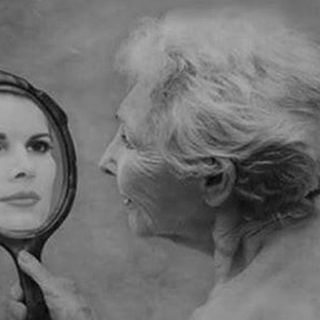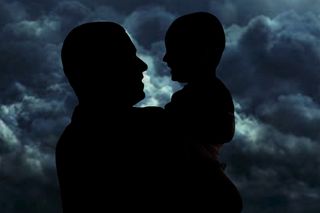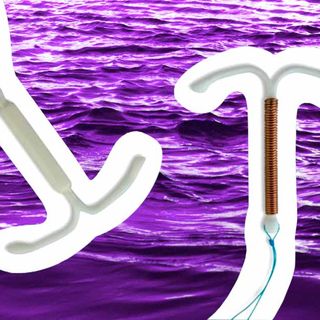
Nearly As Many New Dads Likely to Get Postpartum Depression As New Moms
Maybe now the condition will be taken seriously.

“He said the child had ruined it all for him. He would come to me and cry about having no personal time and that why does everything have to be centered around his child,” says Dr. Kashish Chhabria, a counselling psychologist and psychotherapist.
Chhabria recounts the story of one of her clients: Before the man’s son was born, he would come home from work by 9pm. A month after his baby arrived, he pushed it to 10.30pm. The man, in his early 30s, also stopped socializing with friends and family.
“It was clearly a sign of depression and in his case, paternal postnatal depression,” says Chhabria.
Postpartum depression (PPD), a type of mood disorder, is typically associated with women, specifically new moms who, in the aftermath of childbirth, can experience hormonal fluctuations that affect mental health. The condition ranges from the ‘baby blues,’ which can leave new mothers feeling exhausted and sad, to more serious versions that can incapacitate women and keep them from completing daily care activities for themselves and their child. In India, 22% of new mothers experience some form of postnatal depression, according to recent reports. Globally, approximately 13% women experience PPD, says the World Health Organization.
However, the birth of a baby can also leave fathers with postpartum blues. Officially termed paternal postnatal depression (PPND), this condition could leave new fathers with feelings of intense emotional, social and psychological change.
And according to a new report, nearly as many new fathers — 10% — are diagnosed with this condition globally.
Dr Kedar Tilwe, a consultant psychiatrist, sexologist and geriatric psychiatrist at Hiranandani Hospital, Vashi, speculates, in the absence of any formal study for domestic prevalence, the numbers for PPND in India could range from anywhere between 2% to 10%. “It is a relatively new term, though the condition is not,” says Dr Tilwe.
Men may experience paternal postpartum depression out of new-parent anxiety, or from feeling deprived of the attention they earlier got from their partners; traditional practices like a woman’s return to her parents’ home to give birth, and a lack of paternity leave, put the onus of childcare on new mothers, but may also leave fathers feeling sidelined during their entry to parenthood. Other potential factors include possible hormonal changes, pressure to earn more in order to support a new member of the family, and a lack of emotional and physical intimacy.
The symptoms can range from a sad mood, decreased interest in socializing or hobbies, weight change, insomnia, to fatigue or feeling low on energy. Sometimes, says Dr Tilwe, men experience “feeling like they’ve failed as a father and fear of taking on the responsibility of the child.”
“In extreme cases, the father may have suicidal thoughts or may even want to kill the baby instead,” Dr Chhabria adds. This extreme, rare version of postpartum depression is called postpartum psychosis and can be experienced by either new dads or moms.
Unlike how postpartum depression tends to manifest in women, for men, symptoms do not typically arise immediately after childbirth. “They may either start showing in four to six weeks after the baby, or even after three to six months,” adds Dr Tilwe.
Much public discussion has focused on getting women with PPD help, so the condition doesn’t weaken mother-child bonding, but it’s just as important for depressed fathers to get support for the same reason, doctors say. Untreated postpartum depression in men “could lead to developmental issues [in children], affect their bonding with the parents, and the child may show temperamental issues, even psychiatric disorders like ADHD,” adds Dr Tilwe.
Generally, families extend support to mothers, not realizing that it’s a new phase for fathers, too. Dr Chhabria urges new fathers to tap into their support networks if they start feeling blue after the birth of a child; she stresses that such emotions are not normal, whatever new-parent jokes might suggest.
“Reaching out to family members is a good step. Share responsibilities with your partner, and try to have plans about distribution of work ready before the baby is born,” says Dr Chhabria. “If it doesn’t help, don’t hesitate in seeking professional support.”
And that client of hers, who felt his life was ruined after becoming a father? After a year and a half of counselling, “today, he can’t do without his son around. And now he’s planning a second child,” says Dr Chhabria.
Anubhuti Matta is an associate editor with The Swaddle. When not at work, she's busy pursuing kathak, reading books on and by women in the Middle East or making dresses out of Indian prints.
Related


Study: Inducing Labor at 39 Weeks Doesn’t Increase Chance of C‑section
